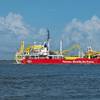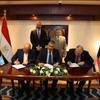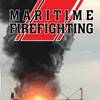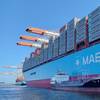The first United States Coast Guard approved ECDIS training course will be offered at Pacific Northwest Maritime Institute as of Monday, February 26, 2001 at the Pacific Northwest Maritime Institute (PNW) in Seattle, Washington. ECDIS integrates the navigational functions of chart upkeep, voyage planning, route monitoring, traffic management, and computer operation. Everyday, more mariners must plan passages, navigate routes, negotiate traffic, and handle their vessels while making use of ARPA, paper chart plotting, visual piloting, and managing ECDIS. Full-scale, certified ECDIS training, such as this 35-hour course, is the surest way for mariners to confidently integrate the powerful ECDIS tool into the complexities of modern bridge operations, says PNW Director Gregg Trunnell. The requirements of the course conform to the International Maritime Organization's (IMO) Performance Standards for ECDIS. Training and assessments incorporate the use of live marine ECDIS equipment networked with blind and visual bridge simulators. Course intake is limited, one mariner per workstation, and no more than three mariners working in rotation on the ECDIS in the bridge simulation. Mariners must develop and demonstrate their skills in validity of sensor data (including radar overlay), potential errors of interpretation, selecting operational settings and alarms for route monitoring, installation and correction of electronic charts, route planning and scheduling, navigational calculations, accessing ship's log and data playback functions, ARPA, and AIS and trial maneuver functions. Mariners must complete a written evaluation to demonstrate their knowledge and comprehension of ECDIS subjects that can not be represented in practical exercises.
The ECDIS used for course training is the Transas Marine NaviSailor 2500, meeting the performance standards by the International Maritime Organization (IMO).
PNW is a subsidiary of the Maritime Institute of Technology and Graduate Studies (MITAGS) in Linthicum, MD. MITAGS history of providing training programs which later become industry standards include shipboard medical care, ARPA, heavy weather avoidance, and VTS training.
Featured videos

Inmarsat Enhances Service to Drive Digitalization

Tracking Foreign Vessels Working in the U.S. Jones Act Market

Unlock Onboard Data Efficiencies
Subscribe for
Maritime Reporter E-News
Maritime Reporter E-News is the maritime industry's largest circulation and most authoritative ENews Service, delivered to your Email five times per week









